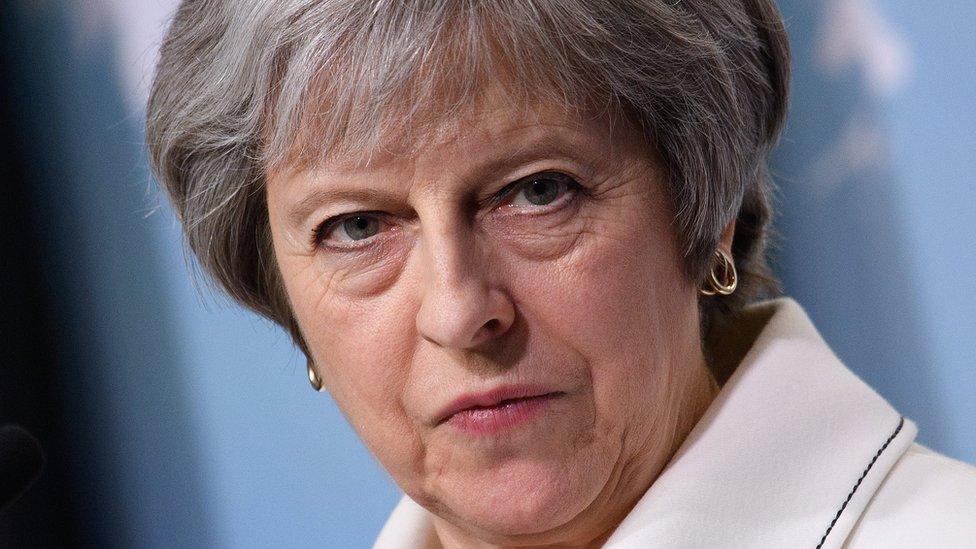Upskirting to be crime after Lords back bill
- Published
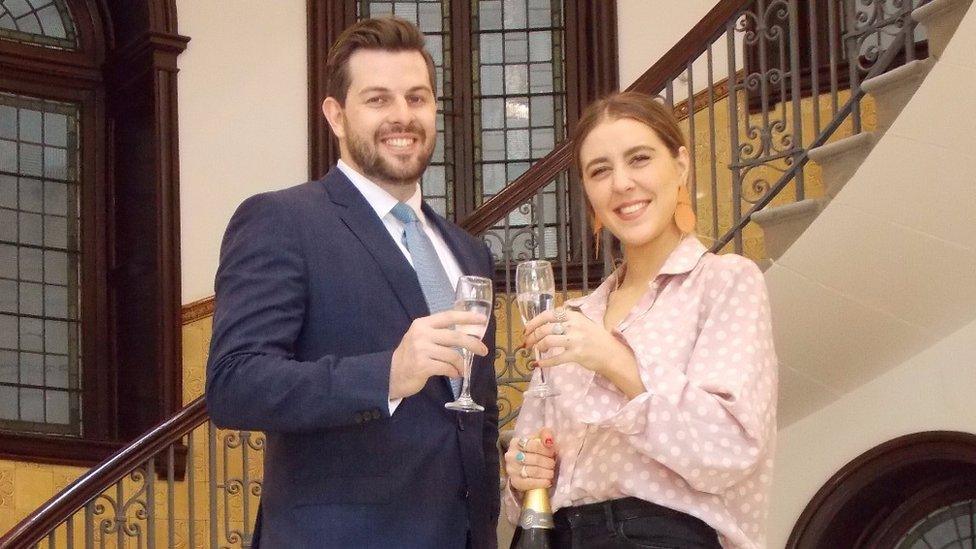
Gina Martin celebrated with her lawyer Ryan Whelan
A woman who launched a campaign against upskirting after being targeted at a festival 18 months ago has said "we did it!" after legislation was passed to make it a crime in England and Wales.
The new legislation, approved in the House of Lords and now only awaiting the formality of Royal Assent, will see offenders face up to two years in jail.
Gina Martin, 26, said the decision was "politics and society at its best".
Upskirting has been covered by legislation in Scotland since 2010.
Campaigner who wouldn't accept the status quo
Speaking after the bill was approved, Gina said: "Eighteen months ago I was upskirted at a music festival and I decided I wasn't going to brush it off.
"I was tired of 'ignoring it'. I felt this was wrong and I was astounded to learn that upskirting wasn't a sexual offence. I wanted to change this for everyone, because the least we deserve is to be able to wear what we want without non-consensual photos being taken of us."
Gina was waiting to watch The Killers perform at British Summer Time music festival in London's Hyde Park when a man put his phone between her legs and took pictures of her crotch.
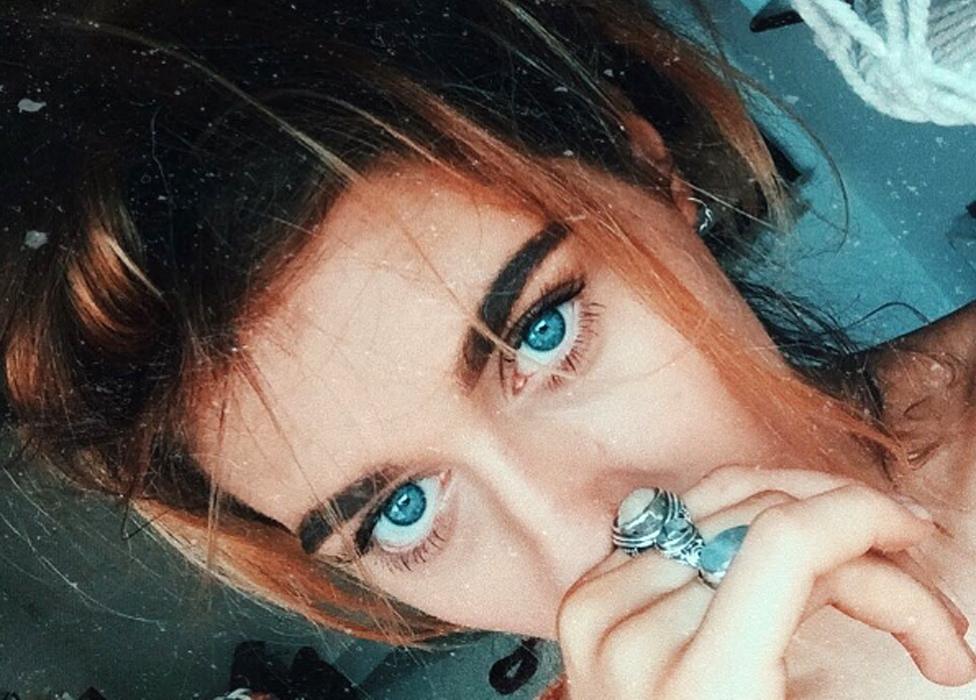
Gina Martin could not believe that, when she caught a man taking an upskirting photo, there was nothing that could be done
After informing the police, she was shocked to discover upskirting was not a specific offence.
A few days later she posted a status update on Facebook detailing her experience. Her post went viral with other women sharing similar experiences.
Soon an online petition to get her case reopened with the police had received 50,000 signatures and she wrote a feature for the BBC News website explaining her battle. It recalled the dramatic moment when she chased after the man who had taken the unwanted photo.
Gina Martin campaigned for the law to be changed after a man took a picture up her skirt
The campaign that overcame a setback
It wasn't long before the campaign was picked up by Lib Dem MP Wera Hobhouse.
Encouraged by government ministers, she brought a private members' bill backing the creation of an upskirting offence.
Her bill was expected to sail through the Commons, but parliamentary rules meant it only required one MP to shout "object" to block its progress.
And one MP did just that. Conservative MP Sir Christopher Chope had a track record of objecting to private members' bills on a point of principle, because he does not agree with legislation being brought before Parliament on a Friday without enough time for a full debate.
By shouting "Object", he stopped this bill in its tracks - even though he later insisted he actually backed what Gina Martin was doing,
Hear MPs shout "shame" after Sir Christopher objects to the bill
The Christchurch MP's intervention was immediately met with shouts of "shame" from other MPs and a few days later an anonymous protester showed a more visible sign of dissent by hanging four pairs of knickers across the MP's office door at the Commons.
Allow X content?
This article contains content provided by X. We ask for your permission before anything is loaded, as they may be using cookies and other technologies. You may want to read X’s cookie policy, external and privacy policy, external before accepting. To view this content choose ‘accept and continue’.

But there was still hope for Gina and her campaign. Theresa May said she was "disappointed" and vowed that the government would take on the job of pushing the law change through parliament.
She said it was necessary, describing upskirting as a "hideous invasion of privacy which leaves victims feeling degraded and distressed".
Gina's campaign secured government backing on 15 July last year and the Voyeurism (Offences) (No. 2) Bill was put before Parliament only days later.
For Gina, it has been a "steep learning curve" in how the political system works.
She said: "To the outsider, the ordinary person, law and politics are complex and daunting. But both are penetrable if you believe in yourself and find the right support."
Why was there no law on upskirting (in England and Wales?)
"He was laughing": Three women tell the BBC's Victoria Derbyshire about their experience of upskirting
Until the law is passed specifically naming and banning upskirting, victims and police in England and Wales are currently only able to pursue offences of outraging public decency or as a crime of voyeurism.
Voyeurism only applies to filming actions taking place in private while outraging public decency usually requires someone to have witnessed the action but upskirting is often unobserved.
Unlike other sexual offences, people don't have automatic right to anonymity.
Upskirting has been an offence in Scotland since 2010 when it was listed under the broadened definition of voyeurism.
Nine years later, the actions of one woman have ensured that England will soon be following suit.
Allow X content?
This article contains content provided by X. We ask for your permission before anything is loaded, as they may be using cookies and other technologies. You may want to read X’s cookie policy, external and privacy policy, external before accepting. To view this content choose ‘accept and continue’.
- Published18 June 2018
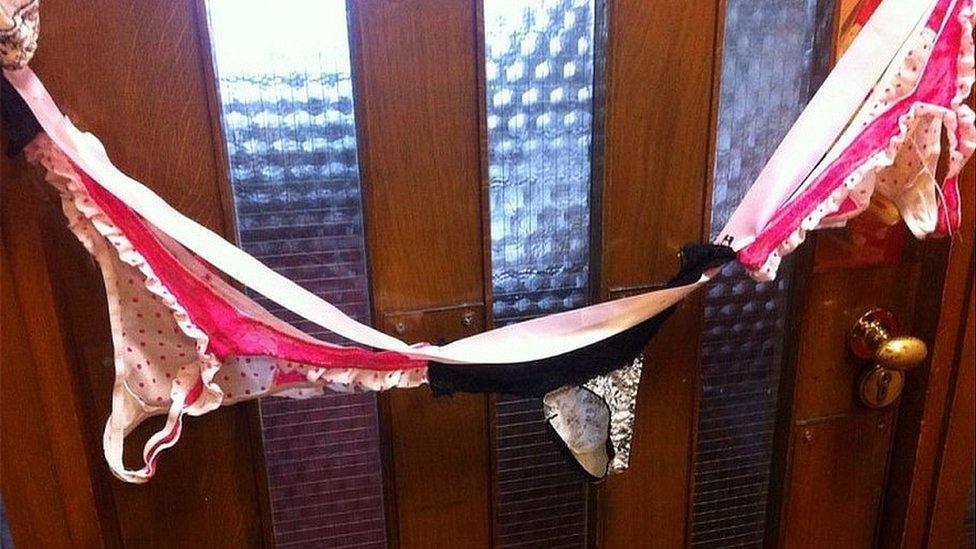
- Published17 June 2018
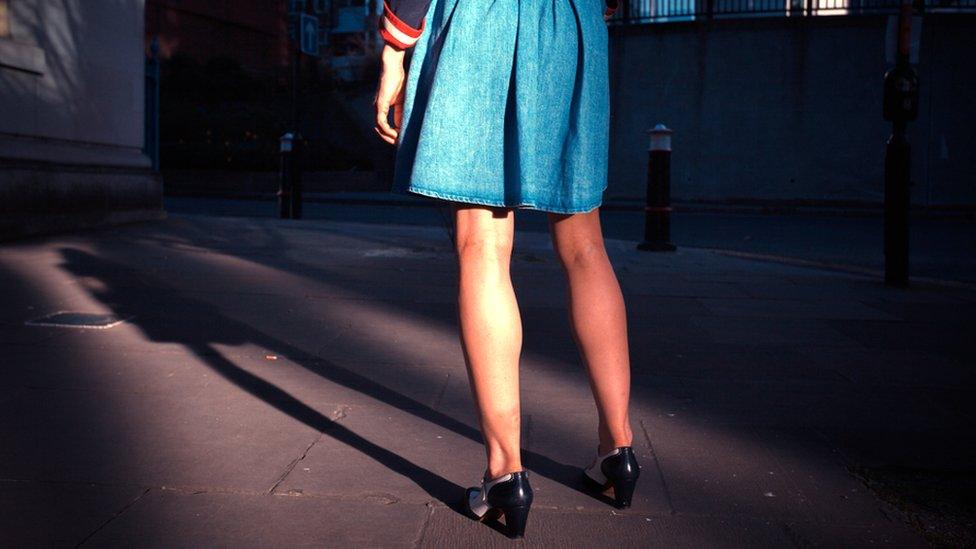
- Published15 June 2018
